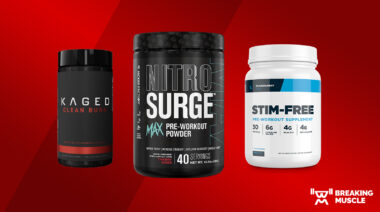Coenzyme Q10 (coQ10) is a substance in the human body that has gained a lot of attention in the last ten years or so. Famous in supplement form as a means of reducing the effect of aging, many people consider it one of the best supplements available for older individuals. It is produced naturally in the human body for many functions, not the least of which is as a necessary coenzyme for energy production.
With that last sentence I imagine the ears of the athletes and coaches reading this perked right up. CoQ10 is necessary for energy production, and so might be a valuable substance for an athlete to supplement, but some of the results in this regard have been mixed. Researchers in a recent study in the Journal of the International Society of Sports Nutrition believed it was because of insufficient dosage, and sought to find out if coQ10 really was a performance enhancer.
The form of coQ10 that they studied was called ubiquinol or “reduced coQ10.” Ubiquinol is the unoxidized form of coQ10, which means that not only is it a part of energy production, but it’s also a potent antioxidant. To put more simply, it’s good for athletes in a variety of ways.
And that’s not just speculation, the researchers demonstrated the most controversial of ubiquinol’s benefits in a laboratory setting – as a power enhancer. And not just any power enhancer, it was shown to boost power in a study of one hundred well-trained athletes. These athletes train at an Olympic training camp in Germany and many competed in the Olympics in 2012, so they are legit. And what that means is that improved results for them are even harder to come by.
What researchers found was that six weeks of ubiquinol supplementation boosted power output by 2.5%. Extend that to a year and you have a huge difference in performance of which any athlete should take notice.
It might be time to jump on the bandwagon, but there are a few things to consider. This study was funded by some pharmacological companies, but it didn’t seem to effect the results insofar as I can tell as they didn’t seem to be pushing any brand in particular. Also, coQ10 isn’t exactly the cheapest supplement and they used a good dose.
One of the cheaper brands of coQ10 costs about $18 USD for 60 caps at 50mgs each. In the study they reached the power benefit using 300mgs, so it would take six per day to get the studied dose. That means this bottle would last only ten days. For the six weeks of the study, you’d have to spend roughly $75.
For an athlete, a two and a half percent improvement might be worth $75, but for the average person just looking to get stronger and healthier from exercise, that might be a bit steep. So with that in mind the choice is yours. It’s a good solid supplement, with a host of benefits including an improvement to power, but at a cost that many won’t find palatable.
References:
1. Dietmar Alf, et. al., “Ubiquinol supplementation enhances peak power production in trained athletes: a double-blind, placebo controlled study,” Journal of the International Society of Sports Nutrition 2013, 10:24
Graphic courtesy of Triples in LA (Own work) [CC-BY-SA-3.0 or GFDL], via Wikimedia Commons.






